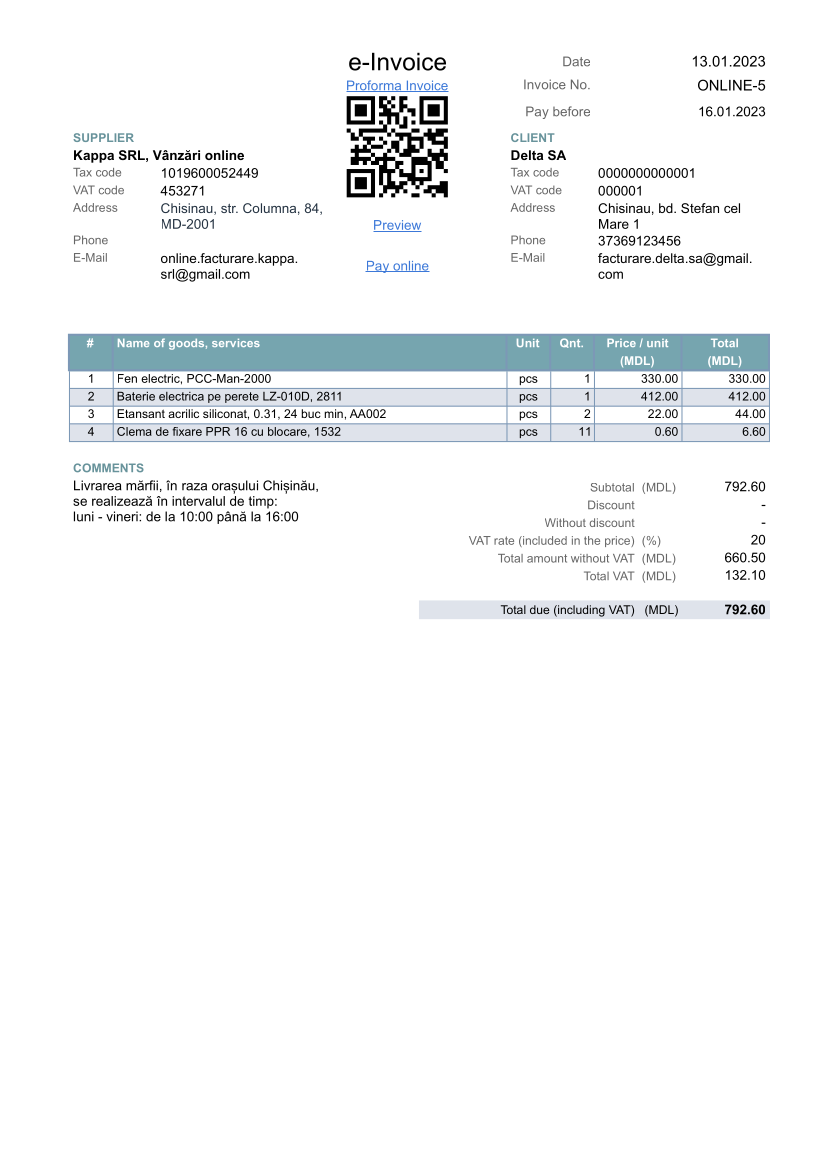A proforma invocie is a preliminary invoice for payment sent to buyers in advance of shipment of goods or service delivery.
Does not require payment.
A pro forma invoice includes a description of the item, the total amount due, and other transaction details.

Show how much the goods or services will cost to help the buyer decide if they want to continue with the purchase.
In many ways, a proforma is closer to a quote or estimate than an invoice. This is because clients are not required to pay the amount stated on the pro forma, the total amount owed is not taken into account in the client's accounts payable or your receivables, and you cannot use the pro forma to recover VAT.
Essentially, this is information for the buyer so that he knows in advance what to expect and under what conditions.
For example, if payment is required in advance to secure financing before you begin producing goods or providing services, you can use a proforma to offer details of the upcoming transaction.
A pro forma is usually sent to the buyer or client when they have expressed interest in purchasing, but a formal invoice cannot be sent yet as the final details still need to be confirmed. Once the customer agrees with everything, you deliver the goods and issue an official invoice.
The main purpose of a proforma invoice is to show your client the details of the proposed transaction. Therefore, it should include the same information as the final invoice:
Unlike a final invoice, a pro forma invoice includes: